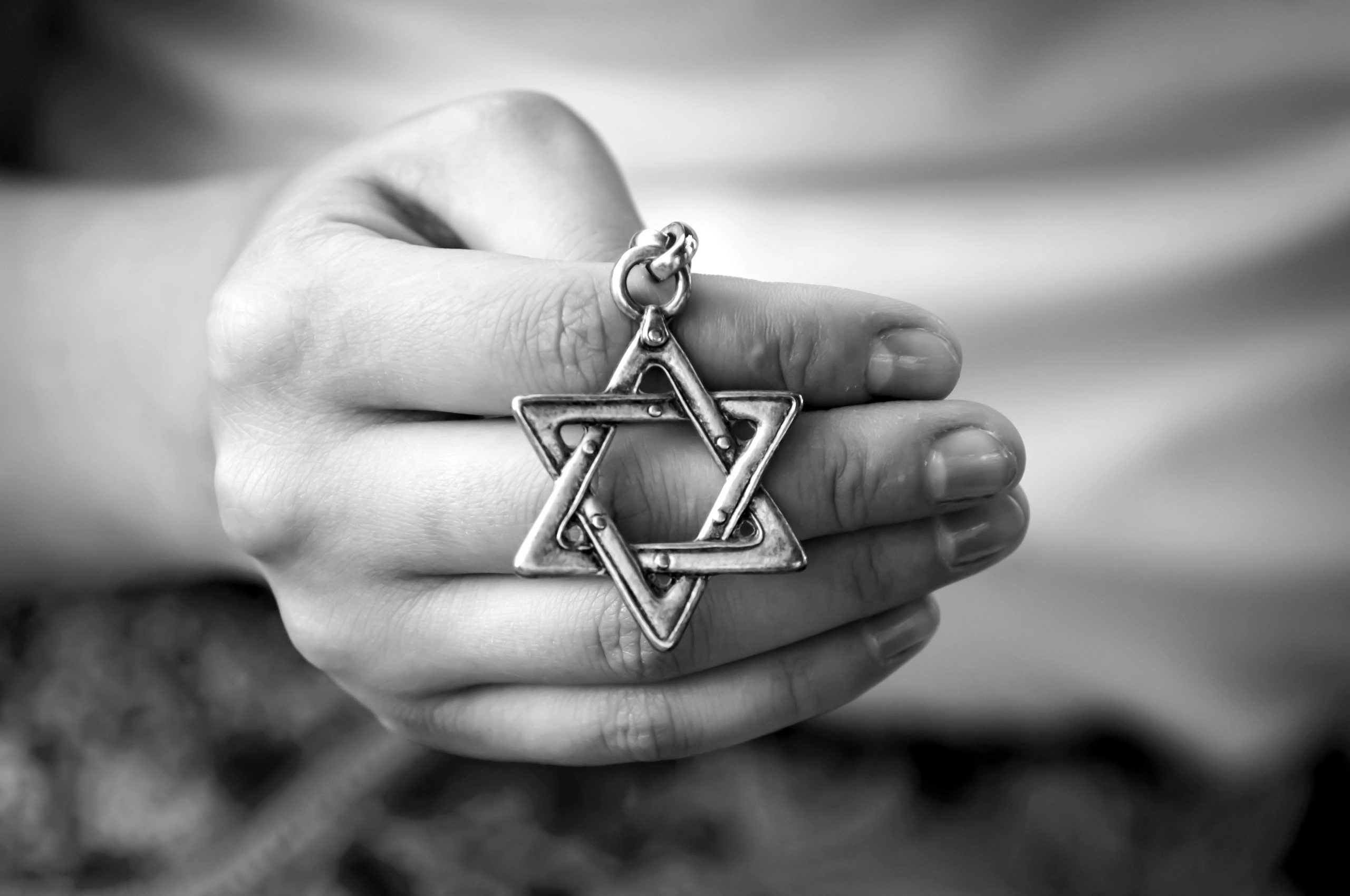How to achieve calm and clarity by observing this Jewish holiday (which can be practiced by anyone!)
Jewish holidays and calm aren’t typically concepts that go together. But I have found that calm can be achieved and nurtured through my specific annual practice on Yom Kippur.
Yom Kippur has held different meanings to me in different phases of life. As a kid, it meant I got to go to a friend’s house and have a sleepover. During my teen years, I got a day off of school (sweet!) and thought the whole fasting thing was, like, the worst. In adulthood, I began to appreciate the holiday as more of a ritual I could enjoy experiencing as being a part of my Jewish community. And in more recent years I’ve found my own meaning in it as I continue to reflect on these cultural and religious practices, what their intentions are and how that resonated for me.
About Yom Kippur
For those who don’t know, Yom Kippur is the last day of the “10 days of repentance” which starts on Rosh Hashanah (Jewish New Year). It’s a time meant to reflect and atone for any wrongdoings the prior year and make peace with them and God, so you can start your new year on a clean slate.
What Yom Kippur means to me
I find so much beauty in this practice of reflection that I think I’d want to do this even if I weren’t Jewish (and by all means, join me regardless of your religion!)
For me, during the 10 days before Yom Kippur I reflect on my behaviors and thought patterns over the past year, especially those that may have gone against the person I want to be and stand for. I look at my being and think: What have I done this year, and what do I want to do? It’s not about beating myself up, not at all, it’s about taking accountability for myself, learning from my experiences, and making right anything that feels out of alignment with my integrity and true self.
How I observe Yom Kippur
While I don’t necessarily believe I’ll be written out of the Book of Life (the book God writes each person’s name who is going to Heaven) if I don’t do this cleansing of my spirit, I find the practice and ritual to be so beneficial that I choose to participate in the tradition.
Tradition calls for a 25-hour fast, so you can reach full clarity in your mind and heart without the distraction of digestion. I do fast, but I drink water, as I find it symbolizes the cleansing of my spirit and body, “washing” away anything I didn’t feel great about – much like the tradition of Tashlich where, in Jewish tradition, they throw crumbs of bread into the river symbolizing the washing away of sins.
Kyle (who converted to Judaism) and I take the day off of work, and we spend the day in individual reflection. I scribe pretty much all day. I write and write and write, all the things I’d been reflecting on in the last 10 days since Rosh Hashanah.
Questions I ponder:
How did I show up in my relationships this year? With the kids, with Kyle, with my family, and friends, with myself?
Have I harmed anyone, misjudged anyone, did I hurt someone’s feelings, even if unintentionally?
How can I show up better in my relationships and in society this coming year? With the kids, with Kyle, with my family and friends, with myself and my community?
What do I want to start, stop or continue in my life?
I put an actual pen to paper, and I write a stream of consciousness style. You’ll be amazed how cathartic this is!
How Yom Kippur creates calm
It feels so good to get all my thoughts and burdens out of my heart and onto the paper. Sure, sometimes it can be emotional – after all, growth is in the hard stuff, but I have always, always come out of Yom Kippur feeling lighter and better.
The three main emotions I feel at the end of Yom Kippur are: compassion, gratitude and – you guessed it – calm.
Learning about myself and knowing my focus for the coming year provides an incredible sense of calm for me.
Making the most of the Yom Kippur experience
If you choose to start or continue this practice of annual reflection, after getting it all down on paper, the good, bad and ugly, now it’s time to activate the good for the coming year.
Put what you want more of in your life, or who you want to make amends with, in your calendar to make sure you’ll achieve them. For example, last year I realized I wasn’t volunteering enough to feed my soul, so at the end of my reflection I scheduled time in my calendar to research places and organizations I could volunteer with. And guess what? It got done. Now, I’ll be able to put that under “continue” on my “things to start, stop, continue” list this year and either continue or pause depending on what else comes up for me. Putting your desires into your calendar ensures you get the wheels rolling.
I also reach out to anyone I feel like I’ve wronged. Even if it wasn’t necessarily “wronging” that person. Maybe I didn’t give someone the benefit of the doubt or judged someone incorrectly, I’ll make it right.
For example, one year I wasn’t proud that I’d had negative thoughts about another mama about her, what I considered at the time, over-the-top involvement in her kids’ lives, “helicopter parenting.” She never knew I had those thoughts, and on reflection I realized how unfair and judgmental it was and that all she was doing was what she thought was best for her kids. Instead of an “I’m sorry,” I wrote to her – very genuinely – that I thought she was a wonderful mother because she cared so much about her kids and their successes. I added that I hoped I could also show up for my kids with as much energy and passion on their behalf as she did.
Consider Yom Kippur, whenever you choose to do this activity, to be the “meaning” in your calendar of life.
What if the same stuff comes up year after year?
Issues that repeat year over year used to make me mad! I always want more time to volunteer or hang out with my husband. But we are all a work in progress. Give yourself grace and compassion for handling the things you did do in life, things that were likely more urgent at the time.
Try to find the barriers to doing those things that keep popping up. Are there ways you can ensure you can achieve them? Can you get rid of something else on your calendar to make room? Keep your dreams on your list and keep trying to work them in! You’ll find as the kids get older, as your job changes, as life evolves, you will be able to construct your life toward the one you want.
How is this different from New Year’s?
The main difference between Yom Kippur and New Year’s Day is subtle, but important. On New Year’s, people tend to put aspirational goals down on their resolution list. Habits they want to start, big (often too big) goals they want to achieve. And while that can be part of your Yom Kippur reflection, the main difference is your Yom Kippur reflection is based in the now. It’s based on what you did or did not do this past year. It’s about righting wrongs.
Humans love atonement, or it wouldn’t be written into most religious rituals (like confession in Catholicism, Lent in Christianity, and Ramadan in Islam). No matter what religion you are, or if you’re agnostic or atheist, only good can come out of this time of reflection.
For more tips on how to own your calm, sign up for the Chaos to Calm newsletter!

